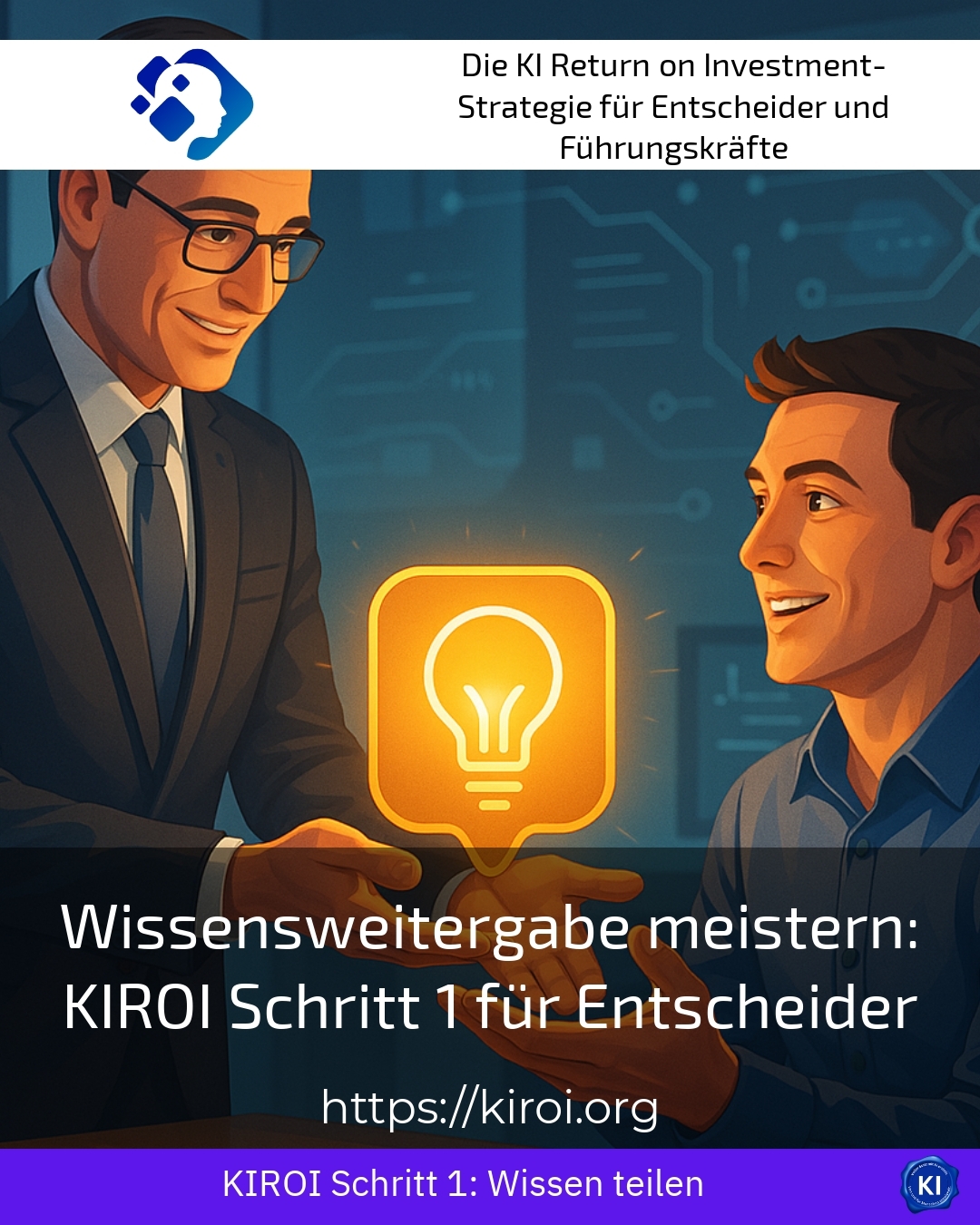Knowledge transfer as the key to sustainable collaboration
In the day-to-day operations of many companies, it is clear how central the safeguarding and transfer of knowledge is to success. However, knowledge transfer means much more than just passing on information. It is about establishing a culture in which people actively and purposefully share their expertise.
The challenge that many managers face is the question: How can knowledge transfer be organised in a lively way? How can structures be created that are flexible and at the same time have a long-term effect? KIROI accompanies precisely this process and provides support in finding individualised paths that are not only a good technical fit, but also a good cultural fit.
Knowledge transfer - a communicative and cultural process
Sharing knowledge is not a one-way street, but a lively dialogue that requires a corresponding culture within the company. It helps to break down inhibitions and motivate people to engage in active dialogue. KIROI supports managers in providing impulses that question established ways of thinking and initiate new learning formats.
In the technology sector, it is often necessary for teams to be better networked and for expertise to be shared efficiently. In the service sector, hybrid forms of learning are creating new opportunities, for example through a combination of digital workshops and face-to-face meetings. In manufacturing companies, on the other hand, the challenge of managing information flows in such a way that employees have quick and easy access to relevant knowledge and can apply it in their day-to-day work is becoming apparent.
KIROI BEST PRACTICE at company XYZ (name changed due to NDA contract)
In the technical environment, a framework model was created with support in which internal expertise is systematically exchanged. This includes regular informal meetings and a digital platform that promotes the flow of knowledge. The result is stronger networking and increased flexibility for complex tasks.
Using a variety of methods in a targeted manner
Experience shows that it is not enough to simply introduce various methods. Instead, KIROI provides support in finding exactly the formats that suit teams and topics. Hybrid forms of learning play a major role here - in other words, the combination of online and face-to-face formats that reach people at different locations and with different needs.
Employees should be motivated not only to retain knowledge, but also to pass it on in a situational and needs-orientated manner. External support provides impetus to reflect on old patterns and jointly develop new structures that will also be effective in the long term.
KIROI BEST PRACTICE at company XYZ (name changed due to NDA contract)
A knowledge network was established at an organisation in the service sector through targeted coaching. The communication channels were analysed, adapted and provided with manageable tools. As a result, expertise became more visible and easier to access, which significantly improved collaboration.
Providing impetus for sustainable learning cultures
Workshops and training courses have often proven to be important impulses for the transfer of knowledge. They promote dialogue, reduce fear of contact and create an atmosphere in which learners inspire each other. It is important that these formats are practical and tailored to the individual specialist areas.
In production companies, it is often experienced that targeted communication workshops not only improve cooperation, but also increase transparency and trust. In this way, knowledge and experience can be shared more sustainably.
KIROI BEST PRACTICE at company XYZ (name changed due to NDA contract)
In the technology sector, regular workshops have helped employees to exchange experiences and familiarise themselves with new technologies. This created a common understanding, promoted innovation and facilitated cross-divisional collaboration in complex projects.
My analysis
Knowledge transfer is more than just the transfer of information. It is about the conscious design of learning and communication processes that enable sustainable collaboration. KIROI's support can help to develop individual solutions that are also effective in dynamic environments and thus realise the potential of collective knowledge.
Managers benefit because they are given the impetus to break through established patterns and establish suitable structures for the exchange of knowledge. This opens up space for innovation and flexibility, which are crucial in times of rapid change.
Further links from the text above:
The 7 secrets of successful leadership in the digital era [1]
Applied Knowledge Management - Linz - JKU ePUB [2]
Rethinking knowledge transfer: Step 1 to success with KIROI [4]
KIROI Step 1: How decision-makers turn shared knowledge into competitive advantages [5]
For more information and if you have any questions, please contact Contact us on the topic or read more blog posts on the topic Artificial Intelligence Blog here.















